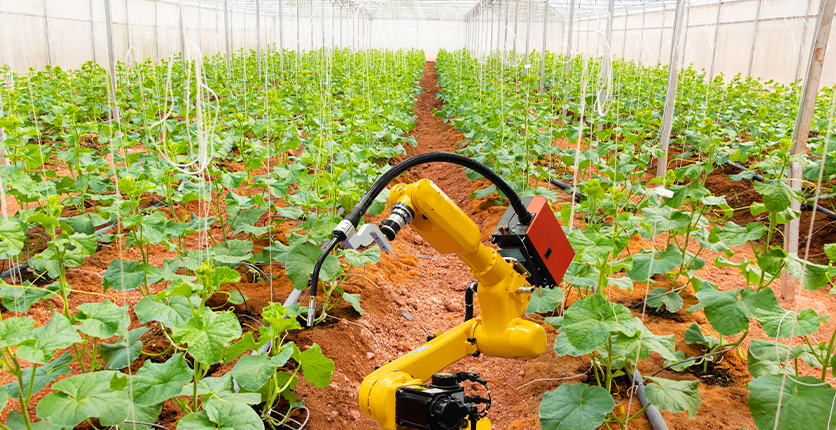The way we work has changed a great deal over the last few decades. Thanks to advances in technology, for instance, certain industries have shrunk while others have boomed; and the demand for manual skills has declined while other skills, like social and analytical, have gained favour. The advent of the Internet changed the way we communicate and get work done, through emails, file-sharing platforms and virtual meetings.
And the world of work will continue to change, perhaps even more rapidly than before. New jobs will be created while others will become irrelevant or obsolete, and new industries will emerge or overlap with existing ones. More and more of us will also work remotely, become independent contractors or engage in “gig” or freelance work as we strive to achieve a greater work-life balance and as employers ditch the standard 9-5 workday for more flexible schedules.
So, what can you expect if you’re looking to enter the workforce or change careers in the next few years? What jobs will be in demand and what industries will be booming? At the same time, what skills or qualifications will you need to land one of these roles and excel in it? And how can you prepare yourself to be a part of this new future workforce?
To get the answers, we spoke to Ben So, Career Coach and Founder of Emunah Coaching and Training, and Samantha Ng, a career futurist, career wellness advocate and Founder & Principal Trainer at Project Jobless.

Q: What does the future of work look like?
Samantha: It’s hard to say with confidence what it will look like because things are changing so fast. For example, look at prompt engineering jobs. It was only after the launch of ChatGPT that these jobs grew in demand, and this all took place within six months. It probably makes more sense for us to be attuned to updates in the market, from our own industry or sector to our specific role, in order to understand how skills are evolving.
However, if I had to give an overview of the future of work, I’d say that, regardless of your role now, you will definitely need technology (digital) skills to enhance your productivity. If you can’t be a super creator (like the people who write algorithms), you’ll need to be a super user. What will also differentiate someone who’s highly skilled between one who’s not, is their ability to critically assess and think – something that AI (artificial intelligence) isn’t able to do.

Q: Besides new innovations and advances in technology, what other factors are driving job changes?
Samantha: As consumer behaviours change, more demands are created and these demands are what create new shifts in the job market. For instance, those of us who have been shopping online are now tuning in to live-streaming. So, if you own an online store, you may need to consider how to increase sales and engagement using live streamers. Live streaming is already considered a career.
As a new generation emerges, needs in the future will be different, too. Since the pandemic, there’s been a bigger emphasis on wellbeing, so jobs that involve helping others achieve good health are growing in popularity.
Read more about the different ways you can upskill and improve your job skills.

Q: What do you think will be the most in-demand professions in the next five to 10 years?
Ben: Here are my top five:
- Cybersecurity
- Software Engineer
- UX/UI Designer
- Allied Healthcare (like an occupational therapist, for example)
- Digital/E-commerce Marketer

Q: What skills and qualifications will be required for these jobs?
Ben:
- Cybersecurity: Degree in Computer Science or relevant certificates (e.g.: OSCP, OSWE, CRT), and project management, leadership and communication skills
- Software Engineer: Degree in Computer Science, Coding (Python), React Native, HTML/CSS, plus attention to detail, and problem solving and communication skills.
- UX/UI Designer: A relevant diploma or degree, plus knowledge of programmes like Miro, Figma, Photoshop, Wireframe and Sketch. You should also be a team player and have problem-solving skills. Attention to detail is a must.
- Allied Healthcare: If you want to be an occupational therapist, you’ll need an honours degree in Occupational Therapy, be physically fit, patient and compassionate, and enjoy working with and helping others.
- Digital/E-commerce Marketer: A diploma or degree in Digital Marketing or Business is essential, as are knowledge of the latest trends, experience setting up websites, an understanding of Google Analytics, and the ability to produce content for social media platforms.

Q: Do you see AI and automation replacing and supplementing certain jobs in the next decade, and if so, which ones?
Samantha: Yes, jobs that involve repetitive tasks and that do not require human intervention will likely be replaced. Certain jobs that are dangerous in nature may also be replaced by automation.
We have experienced disruptions and groundbreaking innovations before – some of us benefited from them while others were left behind. It’s not AI; it’s really our mentality. We should be aware that it is the people who know how to use AI who will replace those who do not (or who refuse to know).
Ben: People will need to learn how to use AI tools such as ChatGPT. But while many things can be automated, you still need an operator. For example, in the near future we may see fewer cashiers at supermarkets, but such businesses will still need cashiers to help those who don’t know how to use the self-checkout machines or when the machines aren’t working.
Find out more about how you can use ChatGPT effectively at work.

Q: It’s said that good talent will be hard to find and harder to retain in the next five to 10 years, especially as more Baby Boomers leave the workforce. Does this mean it’ll be easier to find a job?
Samantha: The most highly skilled among us will be highly sought-after, so companies that cannot afford such workers will find it hard to compete for talent.
Millennials and Gen-Zs, who make up the bulk of the current workforce, have witnessed what previous generations went through in their careers and may not want the same for themselves. So it may be harder to retain talented workers from these cohorts if organisations aren’t attuned to their needs.
When it comes to landing a job, it’s important to remember that, with remote working becoming the norm and more global opportunities presenting themselves, many of us will be able to find work anywhere. There are, and will always be, jobs. The question is, do you have the right skills?

Q: Do you see more businesses becoming virtual and the number of brick-and-mortar operations declining?
Ben: Certain businesses may go virtual but most retail businesses will have both an online and a brick-and-mortar presence. If rents keep increasing, then it probably makes more sense to invest in e-commerce.

Q: What new careers and ways of working can we expect over the next decade?
Ben: We’ll most likely see roles in the sustainability sector – think Carbon Management Specialist and AI-related roles where training will be given by the provider. For instance, at tech company OpenAI, you need to get a certificate from them instead of getting it from a school. Other companies that require you to get certificates from them directly include Google, SEMRush and HubSpot. As technology advances and new innovations come about, we will probably see new roles developed as needed.
See what other roles are possible in the sustainability sector.
Want more articles like this, and other lifestyle content right in your inbox? Download the new SAFRA mobile app and opt in for the eNSman Newsletter – you don’t need to be a SAFRA member to subscribe – and never miss another story!









